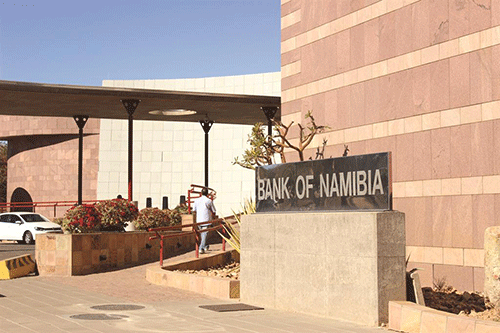Finance and public enterprises minister Iipumbu Shiimi continues to introduce new bills in the National Assembly. On Tuesday, Shiimi introduced a Payment System Management Bill, which is set to repeal the Payment System Management Act of 2003 as amended.
The finance minister noted that the bill is aimed at enhancing the powers and functions of the Bank of Namibia (BoN) to include the supervision and oversight of payment service providers previously regulated by the payment system management body.
“In line with international best practices and extensive engagements with the World Bank, the regulatory powers and functions of the payment system management body have now been withdrawn – and going forward, BoN will be the sole regulator of all participants in the payment system process,” explained the finance
minister.
The determined minister continued that having two regulators in the national payment system has over the years created regulatory uncertainty, as well as inefficiencies in the supervision and oversight of the national payment system.
As such, he noted the domestic payment landscape continues to be an ever-evolving environment with notable advancements noticed in relation to payment technologies, business models and innovative payment solutions.
In the past, the national payment system was mainly characterised by banking institutions; however, non-banking institutions are increasingly providing digital and electronic payment services in the national payment system.
Given this dynamism, Shiimi said the need to introduce enabling, flexible and robust legislation was apparent to embrace innovation, promote competition and manage risk in the ecosystem.
In addition, several significant gaps and shortcomings were noted in the existing legislation, which is salient in enabling the central bank to effectively regulate and oversee the national payment system.
The peer review or mutual evaluation, conducted by the Eastern and Southern Africa Anti-Money Laundering Group (ESAAMLG), of which Namibia is a member, further identified deficiencies within the Payment System Management Act, which prompted further amendments to ensure compliance with anti-money laundering and combating the financing of terrorism and proliferation.
ESAAMLG is a Financial Action Task Force (FATF) style regional body for countries in eastern and southern Africa.
Its goal is to assist members in complying with international standards against terrorist financing. The ESAAMLG focuses on reducing money laundering and terrorist financing in the region.
Further, the newly introduced bill aims to provide for the establishment of the convention of the payment system management body to the Payments Association of Namibia (PAN), with a mandate to serve as a collaborative platform for its members and set technical standards for member’s participation in the payment
system.
“In this regard, the bill provides that the payment system management body will continue to operate as a juristic person under the name PAN. The bill further aims to determine consumer protection principles applicable to all payment service providers and payment system operators, which principles must include provisions for treating users fairly and equitably in the provision of payment services or the participation in a payment system,” said Shiimi.
He stressed that due to legislative gaps within the current Payment System Management Act, it may be difficult for the central bank to address some of the concerns noted from a customer experience perspective.
Thus, as part of the bank’s mandate towards consumer protection and financial inclusion, the bank has inserted certain provisions in the bill in this regard.
The minister assured the August House that the Payment System Management Bill, when passed, will enhance BoN’s majors regulatory and supervisory framework for the national payment system.
To tighten the belt of transparency, Shiimi stated the relevant key stakeholders, such as the public, the national payment system industry members and relevant regulatory authorities have been consulted during the formulation process of the bill and their input has been duly considered and incorporated into the introduced legislation. – mndjavera@nepc.com.na



